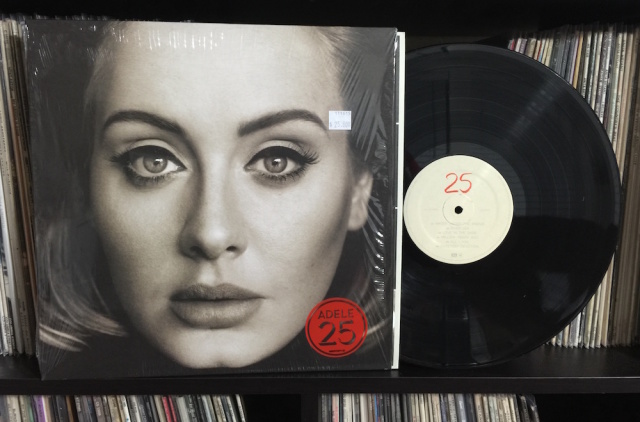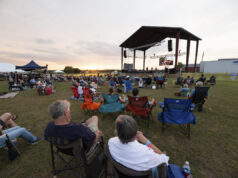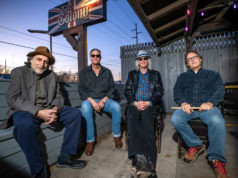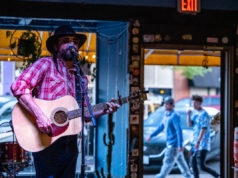
The music industry has been in a frenzy as of late. The long-anticipated album from Adele, entitled 25, was released a little over a month ago, and it remains the top album on the Billboard 200 Albums. It also contains the No. 1 song on the Billboard Hot 100 chart with “Hello,” and has shattered many records in music history.
Of course, a tour to promote the record was inevitable. At first, Adele only announced a European tour, but it wasn’t long until she announced dates in North America as well, including a Nov. 1, 2016, appearance at the American Airlines Center in Dallas, which is the closest she will get to the Sooner State.
Adele has created a larger-than-life musical identity with her chart-topping hits and award-winning performances. In turn, the demand to see her live is tremendously high. Official prices for floor and first-level seats for her upcoming tour range from $100 to $150. It would be a scalper’s dream to buy these tickets and resell them for thousands of dollars considering her overwhelming success, yet Adele’s team has tried its hardest to combat these issues.
For one, Adele’s website held a pre-sale of tickets the day before they went on sale to the general public. This exclusive offer was only sent to those on her email list. Every ticket bought that day will be held exclusively at will call, where purchasers must show a valid ID to pick up their tickets. In an email to members of Adele.com announcing Adele’s North American tour dates, it is stressed that name transfers are not allowed whatsoever. This was the first chance to grab tickets on the floor for her shows, yet they are locked down to the one who bought them.
When the tickets went on public sale the next day, heartbreak ensued as many waited “in line” online for up to several hours without ultimately getting a ticket. The only way these fans now have a chance of seeing Adele will be through purchasing the few tickets Adele’s team allowed to be resold, or ones that fell through the cracks, on websites such as StubHub and eBay.
Adele’s fans are scratching their heads on how to get in with the already exorbitant prices resellers are listing. Although these tickets are limited in number, they are the only ones left, as every show has sold out. Many of her fans who have followed her career will not be able to see her live on this tour.
Adele’s team attempted to keep high resale prices from befalling latecomers.
“By selling the highest number of tickets we were able to through our own channels, and working with Songkick and their technology, we have done everything within our power to get as many tickets in the hands of the fans who have waited for years to see her live,” Adele’s manager, Jonathan Dickens, was quoted as saying in Newsweek.
Dickens added that, for the tour’s U.K. dates, they teamed up with the London-based Media Insight Consulting group, who specializes in managing music data and, among other things, identifying potential scalpers. They were able to stop around 36,000 tickets from going to scalpers, which saved fans potentially millions of dollars.
In America, Adele’s team attempted the same feat with services through Songkick, which sells tickets and creates tailored music calendars for individuals. Nearly 235,000 tickets sold in North America went through Songkick, and site officials estimated that they were able to prevent 53,000 ticket sales to potential scalpers.
Between North American sales and European sales, these services are estimated to have saved fans more than $6 million, according to the Newsweek article cited above.
Mumford and Sons has also begun to speak out about ticket scalping via their website and official blog. In a Dec. 15 post, they criticize those who buy tickets simply for resale, and they have emphasized how their team has gone through extensive efforts — such as looking through credit card transactions individually — to prevent tickets from getting in the hands of scalpers. They encourage those who have bought tickets but can no longer attend the show to use resellers that will only let you sell tickets for face value.
The post is backed by not only the members of Mumford and Sons but various music management entities, including members from Modest Management, which oversees the hot-ticket bands One Direction and 5 Seconds of Summer. The post also has the support of Stuart Camp, Ed Sheeran’s manager.
Those combating the scalpers have also created legal action against the ticket-reselling industry. Mumford and Sons went to the UK’s Department of Culture, Music and Sport to meet and encourage those who are conducting an independent parliamentary review of ticket scalpers.
The New York attorney general is also intervening ahead of Bruce Springsteen’s return to the stage. They have sent letters to ticket reselling sites StubHub, Ticketnetwork and Vivid Seats Ltd informing them to review their ticket listings to prevent excessive buying and to be wary of those listing tickets before the on-sale date. The intention is to help undermine both those reselling tickets not physically in their hands and automated “bots” who collect tickets for future resale.
Despite those who have spoken out against ticket scalping, many of Adele’s fans are still left in the dark. Although her team did its best to prevent the reselling of her tickets, they were in no way 100-percent successful. Her tickets online range from $300 to $10,000 roughly, which would mean mark ups between 200 percent and 6,000 percent. Many of those seats are not even the perceived “good” seats. Those who suffer from nosebleeds should be cautioned.
In short, Adele’s recent struggles seem to mark an escalating battle between artists and ticket resellers. As the battle heats up, artists’ loyalty to their fans will be interesting to watch. Once more artists commit to actively combatting scalping, more fans will be able to see their favorite acts for the prices set by the artists and their agents, not the cheats on the streets.





















